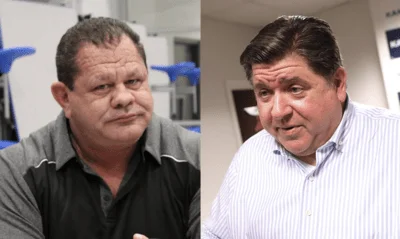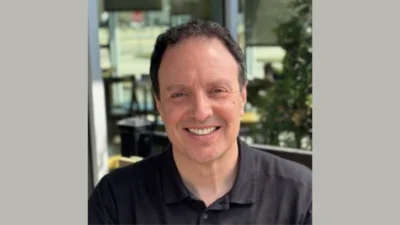Illinois state Rep. Kam Buckner (D-Chicago) | State Representative Kam Buckner/Facebook
Illinois state Rep. Kam Buckner (D-Chicago) | State Representative Kam Buckner/Facebook
Illinois state Rep. Kam Buckner (D-Chicago) has argued that the property tax sale reform bill, expected to soon be signed into law by Gov. JB Pritzker, will create a more equal paying field for those involved in selling delinquent property taxes.
“Over the past two generations, the tax sale system has evolved — whether intentionally or not — into a vehicle to strip wealth and drive inequality in some of our most vulnerable communities,” Buckner, a sponsor of the legislation, said in a statement, according to a recent Chicago Tribune report. “This bill seeks to rebalance the tax sale system in the interest of local governments, residents and community developers who actually want to reinvest in their neighborhoods from the ground up.”
Currently, taxing bodies can collect revenues on delinquent sales while property owners are given extra time to pay their bills without losing their homes. But a recent study from the Treasurer’s office published last fall discovered that a small number of private investors are taking advantage of the system by using a “sale in error” loophole to undo the transaction and recoup their investment plus interest.
The study found that the loopholes cost local governments at least $40 million a year, with the funds often from Black and Latino neighborhoods where the properties are located. Researchers noted that $277.6 million was found in sales in error over a seven-year period beginning in 2015. That amount, which was sent back to the tax buyers, also included a minimum of $27.7 million in interest.
The Tribune reported that at the beginning of May, 73,733 Cook County property owners were in arrears on their taxes for the 2021 tax year. Soon after the bills were due on Dec. 30, more than 180,000 people were behind on their payments.
Under the bill, local governments would be able to take control of properties not purchased in the first round of the tax sale. Property owners behind on their taxes would also benefit from reduced interest rates on monthly payments.
“The legislation — the result of two years of work by my research and policy teams — is the most significant property tax reform legislation the General Assembly has approved in decades,” Maria Pappas, Cook County treasurer said in the Tribune report. “It is a key step toward greater equity in Illinois’ property tax system — one that is long overdue.”






 Alerts Sign-up
Alerts Sign-up